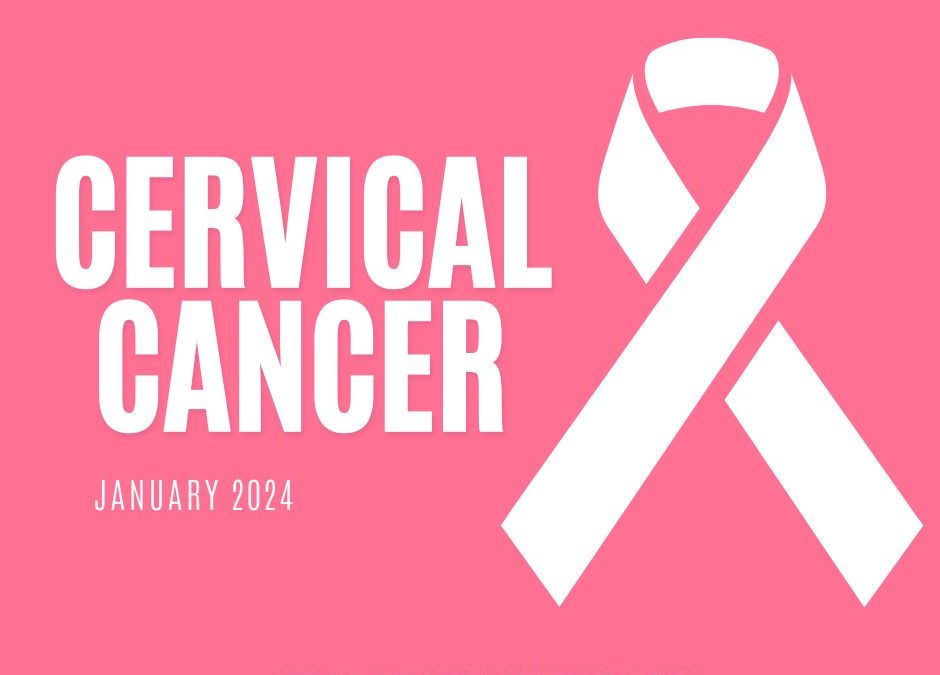Overview
January is Cervical Cancer Awareness Month.
Cervical cancer is a type of cancer that begins in the cervix, the lower part of the uterus connecting to the vagina. It is primarily caused by persistent infection with high-risk types of the Human Papillomavirus (HPV).
Cervical cancer is the fourth most common cancer in women globally with an estimated 604 000 new cases and 342 000 deaths in 2020 according to the World Health Organization.
Key Facts
HPV Link: Persistent infection with high-risk HPV is the primary cause of cervical cancer.
Screening Crucial: Regular Pap smears and HPV tests enable early detection and intervention.
Vaccine Protection: HPV vaccines provide effective prevention against several high-risk types.
Risk Factors
HPV Infection: Particularly high-risk types such as HPV 16 and 18.
Smoking: Increases the risk of cervical cancer.
Weak Immune System: Conditions or medications that weaken the immune system.
Prevention and Control
Vaccination: HPV vaccines are crucial for preventing infections by high-risk HPV types.
Regular Screenings: Pap smears and HPV tests aid in detecting abnormal cells early.
Safe Practices: Practicing safe sex and using barrier methods reduce the risk of HPV transmission.
Smoking Cessation: Quitting smoking reduces the risk of cervical cancer.
Signs and Symptoms
Abnormal Vaginal Bleeding: Between periods, after menopause, or after sex.
Pelvic Pain: Pain during intercourse or other pelvic pain without an apparent cause.
Discomfort During Urination: Advanced cases may cause kidney or bladder issues.
Early Detection Saves Lives
Regular Check-ups: Routine gynecological check-ups are crucial for early detection.
Timely Treatment: Early-stage cervical cancer is highly treatable.
Community Engagement
Education: Raising awareness about cervical cancer, its prevention, and the importance of screenings.
Access to Healthcare: Ensuring that women have access to affordable and regular gynecological check-ups.
Ongoing Research
Advancements in Treatment: Research continues to explore new treatment options and targeted therapies.
Global Collaboration: Collaborative efforts to improve access to vaccines and screenings globally.
Cervical cancer is preventable and manageable with early detection and proper healthcare. Empowering individuals with knowledge, promoting vaccination, and ensuring access to screenings are crucial steps in the fight against cervical cancer. Regular medical check-ups and vaccination are powerful tools for every woman’s well-being.


Good read
Nice piece. Awareness seems to be on the low in Africa, more of such works I believe will help public awareness